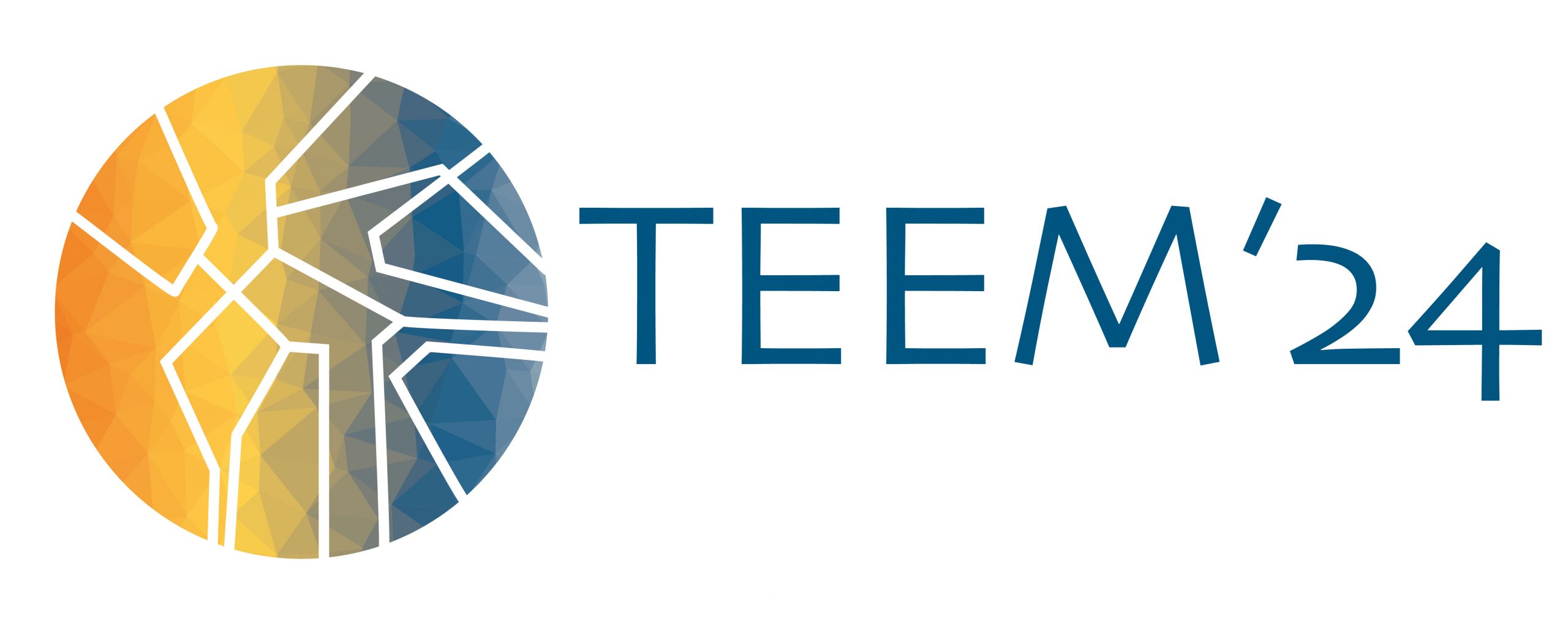Track 6. Bridging the Diversity Gap in STEM
Diversity shortfalls and unequal conditions are widespread issues across different areas of our society, notably seen in the fields of Science, Technology, Engineering, and Mathematics (STEM). These fields are essential for the progress of society. The World Economic Forum has recently emphasized the pressing need for governments to counteract the effects of new technologies on employment markets. This involves enhancing educational policies to significantly boost the education and skill levels related to STEM for people at all life stages. Promoting diversity and reducing inequalities are integral to the UNESCO Sustainable Development Goals (SDG) targeting the year 2030. Among these objectives is the aim to “empower and promote the social, economic, and political inclusion of all, regardless of age, gender, disabilities, race, ethnicity, origin, religion, or any other status” (SDG 10.2). Encouraging participation from all segments of society, including diverse cultures, disabilities, ethnic backgrounds, and gender or sexual identities in STEM, is a strategy employed by organizations, educational institutions, and governments to lessen inequality. Moreover, within the broader context of reducing inequality and encouraging diversity, the underrepresentation of women in many sectors, especially within decision-making roles, stands out in the STEM areas. Despite making up 50% of the population, women are significantly underrepresented in STEM fields. This issue becomes even more pronounced when considering the intersectionality of gender, race, and other factors. The sixth edition of this initiative will persist in bringing to light initiatives, projects, and best practices aimed at enhancing diversity and diminishing inequalities within the STEM sectors, both in academia and the industry. Discussions on diversity will extend beyond gender to include ethnicity, religion, sexual orientation, and more. Contributions that delve into intersectionality issues are particularly encouraged.
Topics
- Fostering diversity in STEM fields
- Attracting women to STEM studies
- Diversity in the STEM workforce
- Diversity, inclusion and intersectionality in STEM
- Teaching innovation related to inclusion and diversity
- Gender mainstreaming in higher education
- Best practices about diversity in STEM
- Dissemination initiatives to promote diversity in STEM
- Gender studies in STEM
- Actions against prejudices and stereotypes
- Promoting women in scientific careers
- Gender perspective in education
- Ethics and diversity in STEM
- Diversity in research
- Co-education practices for STEM
- Intersectionality in STEM
- Gender technologies
- Gender bias in technologies
- Women leadership in STEM
- Gender mainstreaming in STEM research
Sponsored by
The track is supported by the project “Fortalecimiento de espacios coeducativos en carreras STEM: mentorías con perspectiva de género” (Ref. 31-3ACT-23) funded by the Institute of Women of the Ministry of Equality.

Track Scientific Committee
Adriana Gamazo, Universidad de Salamanca, Spain
Amparo Camacho Díaz, Universidad del Norte, Colombia
Ana Belén González Rogado, Universidad de Salamanca, Spain
Ana María González Ramos, Universidad Pablo de Olavide de Sevilla, Spain
Andrea Vázquez-Ingelmo, Universidad de Salamanca, Spain
Anita Tabacco, Politecnico di Torino, Italy
Aruquia Peixoto, Centro Federal de Educação Tecnológica Celso Suckow da Fonseca (Cefet/RJ), Brazil
Blanca Ruth Orantes de Pineda, Universidad Tecnológica de El Salvador, El Salvador
Cassia Isac Gonçalves da Silva, Instituto Federal de Educação, Ciência e Tecnologia do Rio de Janeiro (IFRJ), Brazil
Elvira Rincón-Flores, Tecnológico de Monterrey, Mexico
Emilia López Iñesta, Universitat de València, Spain
Encarnación Gimeno Nieves, Universidad de Alicante, Spain
Francisco José García-Peñalvo, Universidad de Salamanca, Spain
Gabriela Marín, University of Costa Rica, Costa Rica
Germania del Rocio Rodriguez Morales, Universidad Técnica Particular de Loja, Ecuador
Jimena Pascual, Pontificia Universidad Católica de Valparaíso, Chile
José Carlos Sánchez-Prieto, Universidad de Salamanca, Spain
Lourdes Moreno, Universidad Carlos III de Madrid, Spain
Lucy Esther Garcia Ramos, Universidad del Norte, Colombia
María Elena Truyol, Universidad Andrés Bello, Chile
María Luisa Sein-Echaluce Lacleta, Universidad de Zaragoza, Spain
María Soledad Ramírez-Montoya, Tecnológico de Monterrey, Mexico
Maristela Holanda, Universidade de Brasília, Brazil
Marta Martín del Pozo, Universidad de Salamanca, Spain
Mervi Heikkinen, University of Oulu, Finland
Mónica Quezada Espinoza, Universidad Andrés Bello, Chile
Noemí Merayo Álvarez, Universidad de Valladolid, Spain
Noura Aknin, Abdelmalek Essaâdi University, Morocco
Patricia Jimenez, Pontificia Universidad Católica de Valparaíso, Chile
Patricia Paderewski, Universidad de Granada, Spain
Patricia Sánchez-Holgado, Universidad de Salamanca, Spain
Pedro Plaza, Universidad Nacional de Educación a Distancia, Spain
Pino Caballero-Gil, Universidad de La Laguna, Spain
Rita Peñabaena, Universidad del Norte, Colombia
Rosa Gil-Iranzo, Universitat de Lleida, Spain
Sara García Cuesta, Universidad de La Laguna, Spain
Silvia Rueda Pascual, Universidad de Valencia, Spain
Sonia Verdugo-Castro, Universidad de Salamanca, Spain
CHAIRS:

Alicia García-Holgado
Universidad de Salamanca, Spain

Carina S. González-González
Universidad de La Laguna, Spain

Ángeles Domínguez Cuenca
Tecnológico de Monterrey, Mexico
